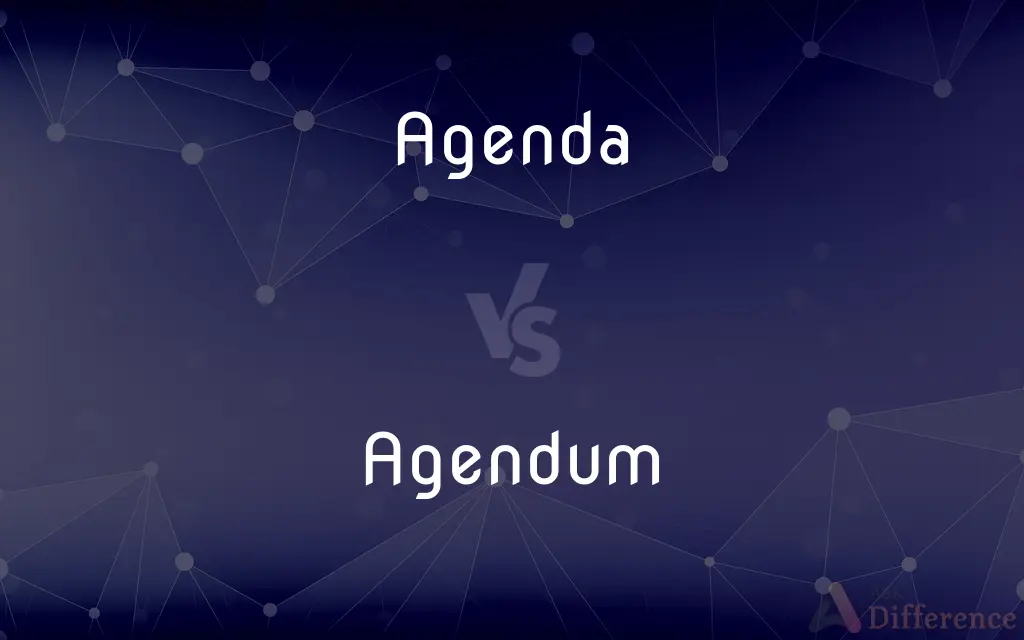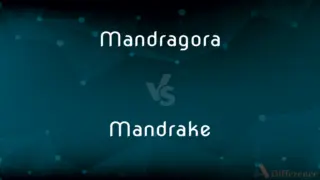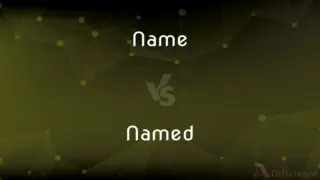Agenda vs. Agendum — What's the Difference?
Edited by Tayyaba Rehman — By Maham Liaqat — Updated on March 25, 2024
Agenda refers to a list or program of things to be done, while agendum, now rare, denotes a single item on such a list.

Difference Between Agenda and Agendum
Table of Contents
ADVERTISEMENT
Key Differences
An agenda is commonly understood as a planned list of items to be discussed, acted upon, or accomplished in a meeting or other gathering. It outlines the topics or activities in sequence, providing a structure for the event. In contrast, an agendum refers to one item on this list. However, the use of "agendum" is now relatively uncommon, with "agenda item" or "item" being preferred in modern English.
Agendas serve as a roadmap for meetings or events, ensuring that discussions stay on track and objectives are met. They can range from simple lists for informal meetings to detailed outlines for formal gatherings. On the other hand, an agendum, being a single aspect of the agenda, represents a specific topic or task to be addressed. The distinction emphasizes the collective nature of an agenda versus the singular focus of an agendum.
While the term agenda is widely used and recognized, the singular form agendum is often replaced by phrases like "agenda item." This shift reflects a broader trend in language evolution, where the specifics of Latin-derived pluralization rules give way to more straightforward usage patterns in English.
In practical applications, an agenda is typically prepared before a meeting or event, outlining the sequence of items, including each agendum, to guide participants through the intended topics. The transition from discussing the overall agenda to focusing on individual agenda items illustrates the dynamic between planning and execution in organized settings.
The preparation of an agenda involves considering the goals of the meeting, the importance of each agendum, and the time allocation for discussion. This planning stage is crucial for facilitating effective and efficient meetings, where each agendum contributes to the meeting's overall objectives.
ADVERTISEMENT
Comparison Chart
Definition
A list of items to be discussed or acted upon
A single item on an agenda
Usage
Common and widely used
Rare and often replaced by "agenda item"
Focus
Overall structure and plan for a meeting
Specific topic or task within the agenda
Preparation
Outlines sequence and topics for discussion
Considered individually within the agenda planning
Language Evolution
Represents modern usage patterns
Reflects traditional, Latin-derived singular form
Compare with Definitions
Agenda
A list of topics or issues to be discussed.
The committee reviewed the agenda for the upcoming session.
Agendum
A specific activity within a program.
The keynote speech is a major agendum at the conference.
Agenda
A sequence of events or activities.
The festival's agenda included concerts, workshops, and lectures.
Agendum
A single issue to be discussed at a meeting.
The first agendum today is the budget review.
Agenda
A list of tasks or objectives.
She checked the agenda to prioritize her tasks for the day.
Agendum
One item on a to-do list.
Completing the report is an important agendum this week.
Agenda
A plan for proceedings or events.
The conference agenda was packed with interesting talks.
Agendum
A specific point to be addressed.
The policy change proposal is on our agendum.
Agenda
A general plan or summary of a project.
The project team developed an agenda to guide their work.
Agendum
A singular focus within a project plan.
Finalizing the design is the next agendum for the team.
Agenda
A list of things to be discussed in a meeting.
Agendum
Something to be done, especially an item on a program or list.
Agenda
A program of things to be done or considered
"King's broadening of the civil rights agenda to include issues of class, income, and employment" (James Carroll).
Agendum
An agenda.
Agenda
(Informal) A usually unstated underlying motive
"Everyone has an agenda, whether he or she is honest about it or not" (Ted Nordhaus and Michael Shellenberger).
Agendum
(obsolete) A task which ought to be done.
Agenda
A datebook
Bought a leather-bound agenda.
Agendum
(theology) Something to be done; a practical duty, rather than an article of faith.
Agenda
A plural of agendum.
Agendum
Something to be done; in the pl., a memorandum book; also, a list of items to be considered. See agenda.
Agenda
A temporally organized plan for matters to be attended to.
Agendum
A church service; a ritual or liturgy. [In this sense, usually Agenda.]
Agenda
A list of matters to be taken up (as at a meeting).
Agendum
A list of matters to be taken up (as at a meeting)
Agenda
A notebook used to organize and maintain such plans or lists, an agenda book, an agenda planner.
Agenda
An ulterior motive.
Agenda
(obsolete) A ritual.
Agenda
Plural of agendum
Agenda
A temporally organized plan for matters to be attended to.
Agenda
A list of matters to be discussed (as at a meeting).
Agenda
A motive or set of goals; as, to have one's own agenda;
Agenda
A temporally organized plan for matters to be attended to
Agenda
A list of matters to be taken up (as at a meeting)
Common Curiosities
What is the difference between agenda and agendum?
An agenda is a list of items to be discussed or actions to be taken, while an agendum is a single item on that list.
How do you create an effective agenda?
An effective agenda is created by clearly listing all topics, allocating time for each, and prioritizing based on goals.
Can "agendum" be used in modern English?
While correct, "agendum" is rarely used today, with "agenda item" being the preferred term.
Is it correct to use "agendas" when referring to multiple lists?
Yes, "agendas" is the plural form when referring to multiple lists of items or plans.
Can an agenda include non-discussion items?
Yes, agendas can include breaks, presentations, and other non-discussion activities.
Why is the singular form "agendum" less common now?
Language evolution and the preference for simpler, more intuitive expressions have made "agendum" less common.
How should items be selected for an agenda?
Items should be relevant, timely, and aligned with the meeting's goals.
Is it important to follow the agenda strictly during a meeting?
While flexibility is important, sticking to the agenda helps keep the meeting focused and productive.
How is the success of an agendum measured?
Success can be measured by the resolution of the issue, progress made, or decisions taken regarding the agendum.
Are there different types of agendas?
Yes, including action agendas, discussion agendas, and consent agendas, each with a different focus.
What is the historical significance of the term "agendum"?
"Agendum" comes from Latin, reflecting the linguistic roots of English legal and administrative vocabulary.
What role does an agenda play in meetings?
An agenda guides the discussion, ensures efficiency, and helps achieve the meeting's objectives.
How can technology aid in agenda preparation?
Technology can help organize, distribute, and modify agendas efficiently, ensuring better preparation and collaboration.
Can anyone propose an agendum for a meeting?
Typically, agenda items are proposed by those organizing the meeting, but suggestions may be welcomed.
How does an agendum contribute to a meeting's success?
Each agendum, being a topic of discussion, contributes to achieving the overall goals of the meeting.
Share Your Discovery

Previous Comparison
Mandragora vs. Mandrake
Next Comparison
Name vs. NamedAuthor Spotlight
Written by
Maham LiaqatEdited by
Tayyaba RehmanTayyaba Rehman is a distinguished writer, currently serving as a primary contributor to askdifference.com. As a researcher in semantics and etymology, Tayyaba's passion for the complexity of languages and their distinctions has found a perfect home on the platform. Tayyaba delves into the intricacies of language, distinguishing between commonly confused words and phrases, thereby providing clarity for readers worldwide.
















































